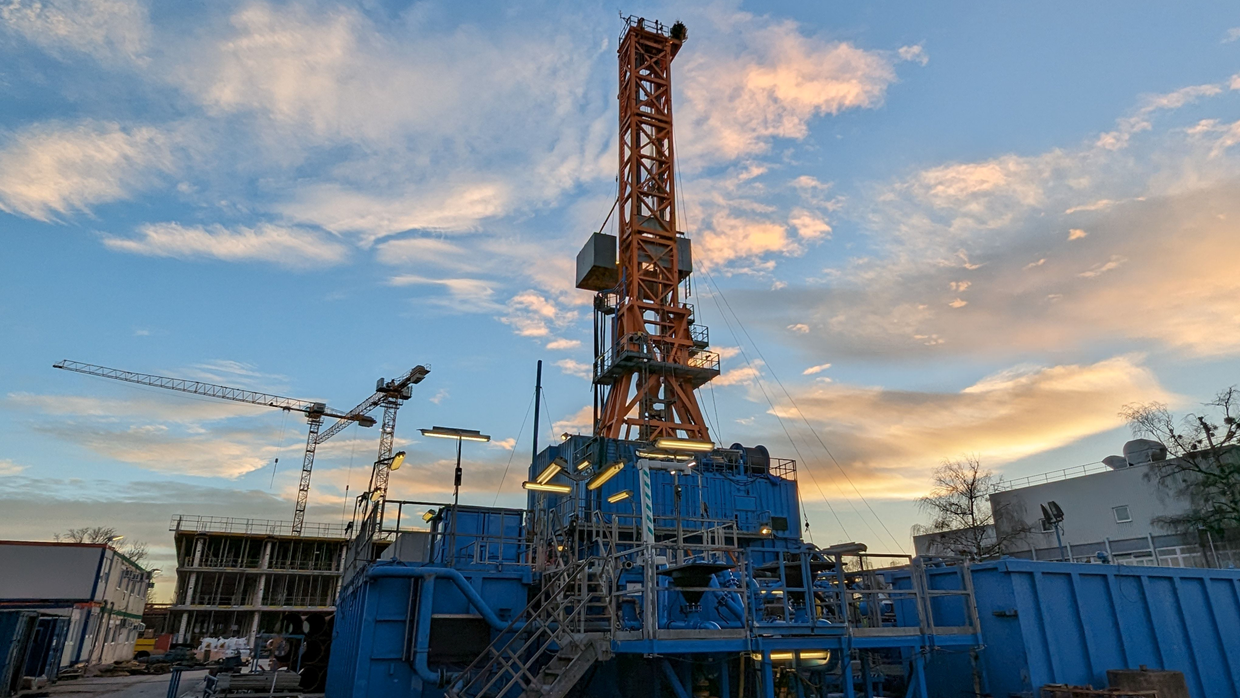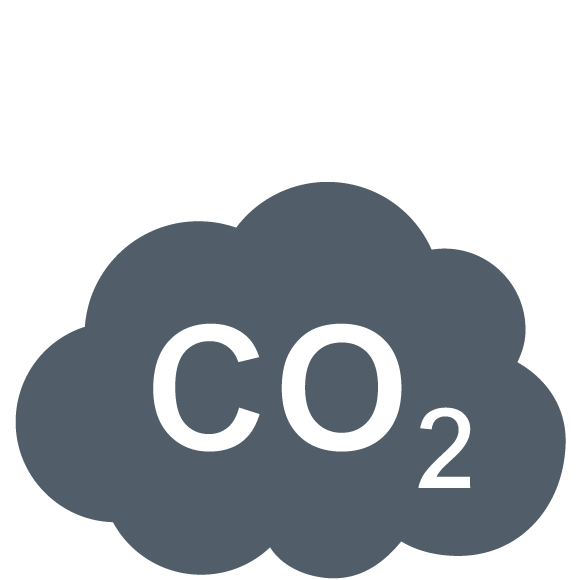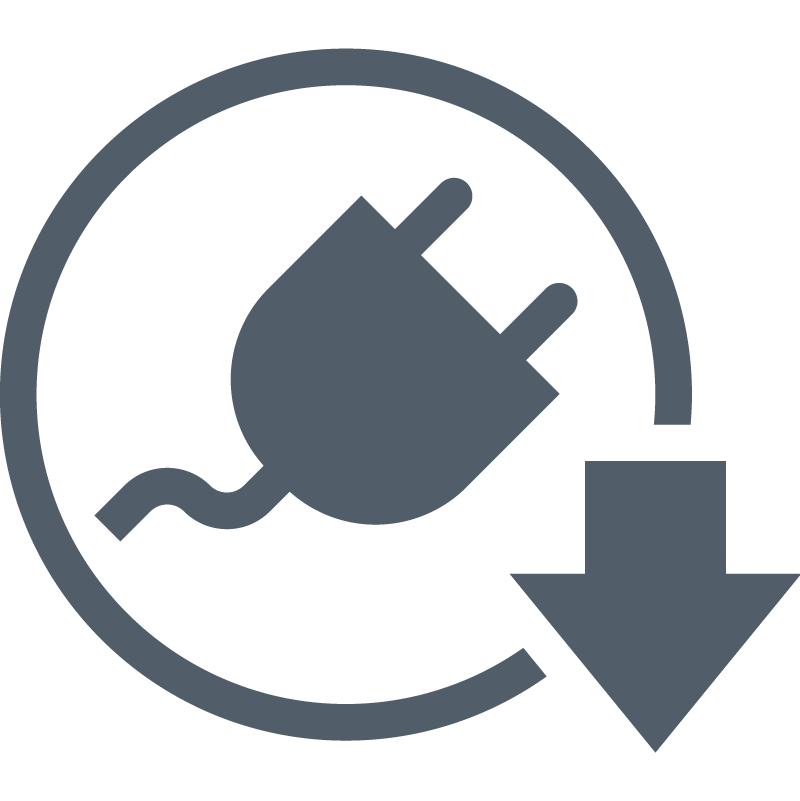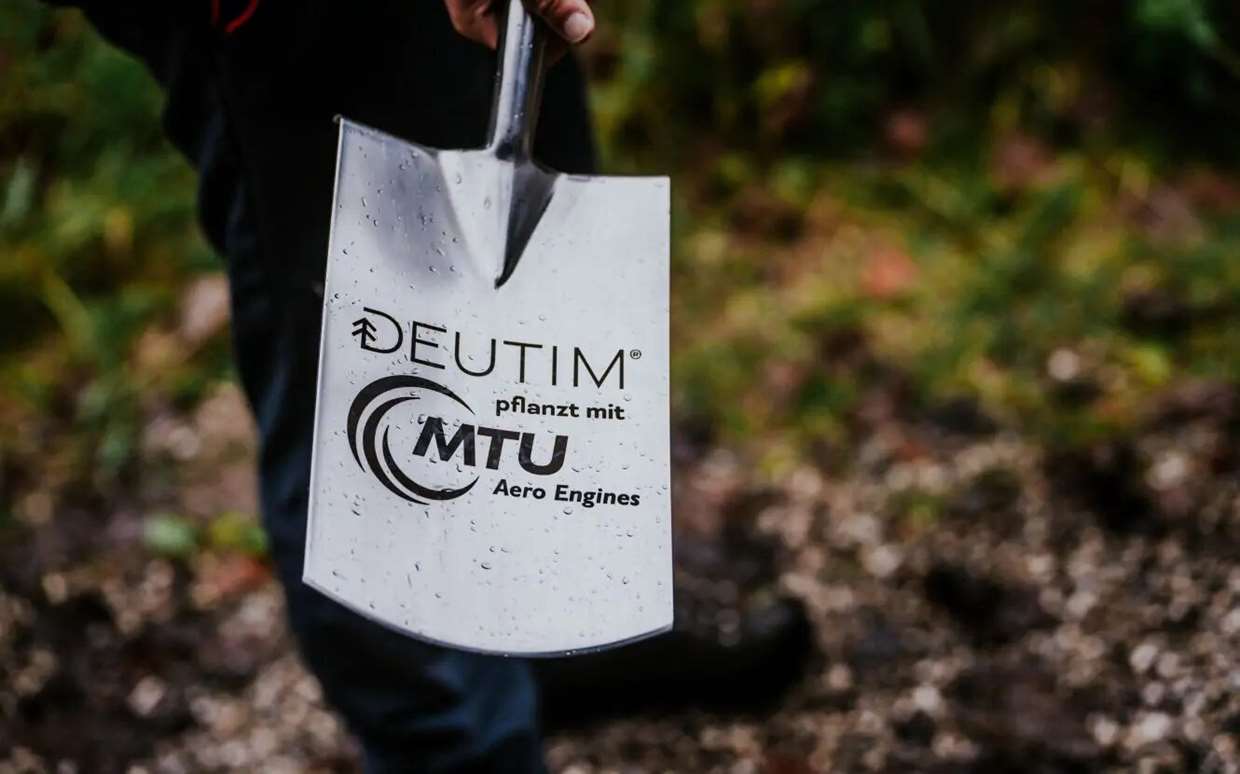Production & maintenance
Climate action at our sites
We aim to use our ecoRoadmap climate strategy to permanently reduce our use of fossil fuels and emission of greenhouse gases in production and maintenance. Important pillars here are the use of more green energy and CO2 avoidance. The long-term goal is to achieve climate-neutral site operations from 2045 onward.

MTU continuously reduces the greenhouse gas emissions resulting from production and maintenance at its facilities as a contribution to global climate action derived from the objectives of the Paris Agreement. Launched at the main site in Munich in 2021, the ecoRoadmap climate strategy completed its first expansion stage (called Green Europe) and was then extended to all fully consolidated production and maintenance sites (Munich, Hannover, Ludwigsfelde, Rzeszów, Nova Pazova, Vancouver) in the reporting year to become Green Global. Its goal is to reduce MTU’s CO2e footprint (measured in terms of significant emissions from Scope 1 and 2) 60% by 2030 compared to the base year of 2019. This effort will involve energy-saving measures and sustainability measures, such as the expansion of our own emissions-free power generation and the increased use of green energy through purchases of green electricity. We offset any unavoidable CO2 emissions that arise through operations at the Munich site, such that this location has operated on a climate-neutral basis since 2021. Green Global’s long-term goal is to achieve climate-neutral production and maintenance by 2045.
Fast facts: #GreenMTU

Scope 1 & 2 carbon emissions at the production and maintenance sites are to be significantly reduced by 20230 compared to the base year.

We want to largely meet our heating needs at the Munich site using thermal water from beneath the ground.

MTU’s electricity consumption already comes mainly from renewable sources.
More green energy for MTU
Local teams develop sustainable measures for the respective location as part of the ecoRoadmap climate strategy and implement these together with the technical departments. Examples in 2023 include optimizing ventilation systems or improving engine test processes. One important pillar on the path to carbon neutrality at the sites is the transition to green energy. These include the company’s own generation of green electricity through photovoltaic (PV) systems and the use of sustainable aviation fuels (SAFs) for engine tests on the test stands. The operation of PV systems for self-supply of electricity was expanded at the Rzeszów site in 2023. For the Munich site, MTU continues to advance deep geothermal energy. In the reporting year, construction work began on the site and the drilling rig was erected. By using thermal water from the ground to supply heat, the site could become largely independent of fossil fuels in the years ahead. MTU wants to play its part in plans to make the city of Munich climate neutral by 2035 and is once again a member of the city’s Climate Pact initiative, which continued in 2023. We are also focusing on the increased procurement of green electricity: for example, electricity consumption at our sites in Poland and Serbia is already completely emissions-free.
In addition, the production and maintenance sites have been implementing local environmental programs that predate the ecoRoadmap. For instance, the Eco Facility 2025 project at the site in Rzeszów, Poland, aims to reduce environmental impacts and to promote environmentally conscious behavior among the workforce.
Energy consumption in 2023
CO2 emissions in production and maintenance (Scope 1 and 2) essentially result from the energy consumption required for site operations. Regarding non-renewable primary energy, we use natural gas and the aviation fuel kerosene as well as fuels for mobility, which make up a very small proportion of the total. We intend to use more photovoltaic energy in the future, and we have commissioned our first photovoltaic systems at the Munich and Rzeszów sites. In addition, the Hannover site makes use of solar energy with the aid of a solar thermal power plant and also employs a cogeneration plant comprising three micro gas turbines for generating electricity and heat. A heat pump for combined heating and cooling is also in operation. We also achieve greater energy efficiency by having the sites use waste heat from compressed air generation as thermal energy (combination principle).
Scope 1 and 2 energy demand was 326.3 gigawatt-hours (GWh) in 2023, which was higher than the previous year’s level (306.7 GWh). The increase in energy consumption is due to higher capacity utilization and the first-time inclusion of our new site in Serbia in the period under review. Our energy demand for Scope 1 (direct energy consumption) was also higher than in the previous year. Scope 1 primarily concerns the energy sources natural gas and kerosene. Natural gas is used primarily for heating, in production, and, to a lesser extent, for test stand operation. Kerosene is used as a fuel for testing engines on the test stand, so consumption depends on how extensive the tests are, how many are performed, and on engine size. MTU has no direct influence on the type and duration of test runs. All newly maintained or manufactured engines must complete a test run prior to delivery for safety reasons and to demonstrate their performance. The use of simulations in development and manufacturing reduces the amount of development testing for new engines. We are able to run our test stands in Hannover and Berlin on sustainable aviation fuels (SAF). SAFs are a pillar of our ecoRoadmap climate strategy, which is why we want to continue to drive their use on our test stands.
In 2023, we procured a total of 147.6 GWh (2022: 136.0 GWh) of external energy (Scope 2). Here too, the higher electricity consumption is due to higher capacity utilization and the new site in Serbia. This purchased electricity is drawn from renewable sources in varying proportions. At the sites in Poland and Serbia, for example, it was completely emissions-free. MTU Maintenance Canada gets a large portion of its electricity from hydroelectric power stations, which are a renewable resource. As part of our ecoRoadmap, in the future we aim to successively increase the purchase of green electricity generated exclusively from renewable sources.
|
Energy consumption Scope 1 and 2 (in GWh) GRI 302-1 |
|||
|
|
2023 |
2022 |
2021 |
|
Total |
326.3 |
306.7 |
331.3 |
|
Direct energy consumption, natural gas, kerosene, mobility = Scope 1 |
178.7 |
170.7 |
201.2 |
|
Indirect energy consumption, electricity, district heating = Scope 2 |
147.6 |
136.0 |
130.1 |
MTU’s Scope 1 energy demand results from consumption of the direct energy sources kerosene, natural gas, and fuels for mobility. MTU’s Scope 2 energy demand results from the consumption of bought-in energy (electricity and district heating). Other energy consumption (e.g. other fuels) is not reported, as its contribution to total Group consumption is immaterial. The Nova Pazova production site in Serbia reported for the first time in 2023.
Electromobility at MTU
Fleet and company cars: An unbroken trend toward electromobility has been visible in our fleet for several years. In Germany, we have a total of 56 all-electric and 38 plug-in hybrid vehicles in use, meaning we have electrified 50% of our whole fleet. By the end of 2027, we want to electrify our vehicle fleet entirely.
Deutschlandticket national rail pass: We promote sustainable commuting practices among our workforce, through a special discounted “job ticket” for the local public transportation network or web portals for carpooling.
Our carbon footprint for 2023
In the reporting year, MTU generated 49,300 metric tons of CO2e emissions at its production and maintenance sites from its use of major energy sources (2022: 47,600 metric tons). Here, too, the increase in capacity utilization and the new site in Serbia contributed to the increase in emissions, although the emissions from electricity consumption in Serbia (Scope 2) were offset in nominal terms via the purchase of certificates. MTU offset the remaining Scope 1 and 2 CO2e emissions for operations at Munich, such that this site achieved net-zero status in 2023.
|
CO 2 emissions (in t CO 2 equivalents) Scope 1 and 2 GRI 305-1, 305-2 |
|||
|
|
2023 |
2022 |
2021 |
|
Total |
49,300 |
47,600 |
54,800 |
|
Scope 1 |
39,600 |
38,000 |
44,400 |
|
Scope 2 |
9,700 |
9,600 |
10,400 |
MTU’s Scope 1 CO2e emissions result from consumption of the direct energy sources kerosene, natural gas, and fuels for mobility. MTU’s Scope 2 CO2e emissions result from the consumption of bought-in energy (electricity and district heating). The calculation of Scope 2 emissions uses emission factors from energy suppliers (market-based method). Other sources of CO2e such as refrigerants or other fuels are not reported as their contribution to Group emissions is immaterial. The Nova Pazova production site in Serbia reported for the first time in 2023.
CO2 reduction as a compensation-relevant corporate ESG objective
Due to the high priority of climate action at MTU, the reduction of carbon emissions is also an important environmental, social, and governance (ESG) goal. This is an ESG-relevant KPI that factors into the variable compensation of the Executive Board and senior managers. The goal is attained on the basis of the ecoRoadmap climate action strategy for emissions from MTU’s global production and maintenance facilities in Munich, Hannover, Ludwigsfelde, Rzeszów, Vancouver, and Nova Pazova. It is measured in terms of residual CO2 emissions as “maximum residual CO2 emissions in absolute kilotonnes” and in terms of achieved “CO2 savings through sustainable measures in absolute kilotonnes” compared to the base year 2019 (excluding the site in Serbia, since this was not yet operational in 2019). A twelve-month period that deviates from the reporting year is considered the performance period for this purpose (Dec. 1, 2022 to Nov. 30, 2023). The targets were achieved and in some cases even exceeded. More about this in the management compensation report, Annual Report 2023, p. 24ff.

To make our company’s climate impact still more transparent, we take part in the annual assessment by the international non-profit organization CDP, which collects data on companies’ greenhouse gas emissions, climate risks and climate strategies on an annual basis. For 2023, we improved in many areas and achieved a rating of B on a scale from D- to A+. The rating is carried out at the request of the companies and is publicly available on the CDP website.
Scope 3 accounting started
CO2 emissions that do not result from energy use in site operations on MTU’s part fall under Scope 3. These include, for example, upstream value creation at suppliers, emissions from investments, and downstream product use. MTU included its intention to perform Scope 3 accounting in its sustainability strategy and is currently implementing it. We aim to record and evaluate all upstream and downstream activities and to report on and reduce significant categories. Scope 3 emissions from business trips in the Notes
MTU’s reforestation projects


We run reforestation projects together with our partner Deutim to create a regional CO2 reservoir. We will pursue reforestation in Bavaria and Germany together with Deutim until 2025 to ensure climate-stable mixed forests are created for future generations.
This is how much CO2 storage we have already created through reforestation in German forests (as of spring 2024).